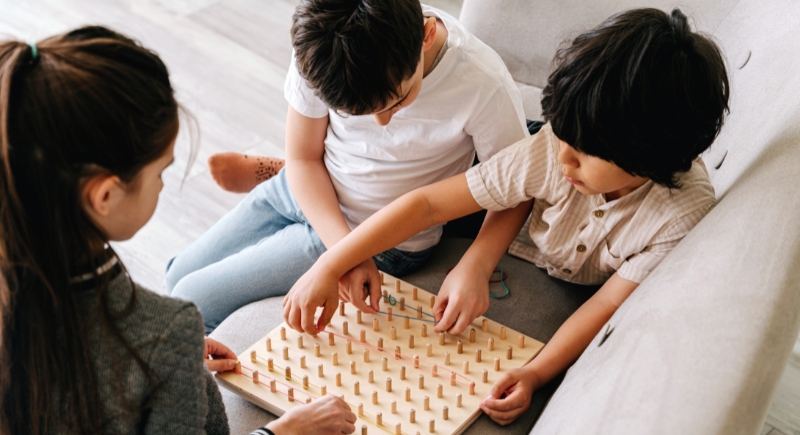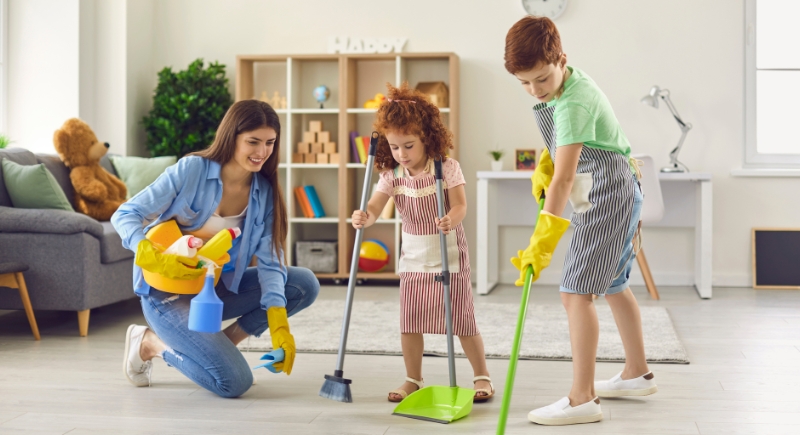Parenting Techniques Boomer Parents Used That Were Actually Effective
Parenting styles have shifted over the years, yet some approaches Boomer parents relied on still hold up because they encouraged awareness, responsibility, and practical skills. They also picked up structure, manners, responsibility, and social awareness. When adapted for 2025, these ideas still work because they build lasting habits without depending on screens or constant supervision.
Less Screen Time

Credit: pexels
Boomer homes didn’t have iPads or smartphones, so kids wandered, played, and figured things out by trial and error. Teresa Kaye Newman, a teacher, argues that kids benefit from exploring the real world instead of being glued to a tablet. She also notes that younger kids don’t understand online safety, so delaying smartphones until high school made sense.
Respect For Teachers

Credit: pexels
As someone who teaches for a living, Newman points out that treating educators well creates better behavior and better learning. Boomer parents rarely questioned a teacher’s authority, and that approach prevented the classroom from becoming a battleground.
Manners Still Mattered

Credit: Getty Images
Simple greetings like thank-yous and respectful titles like yes, ma’am were routine. Even though the phrasing feels old, the function still works. Young ones who practice basic courtesy handle social situations more easily. These habits aren’t taught as often now, which makes them stand out even more when kids actually use them.
Consequences That Made Sense

Credit: Studio India
Taking away privileges worked because it linked choices to real outcomes. If schoolwork slipped, the child lost access to technology and understood why. The method stayed simple and steady. Kids learned that behavior shapes freedom, a lesson that shows up later in life through bills, deadlines, and workplace expectations.
Not Interrupting Adults

Credit: Getty Images
Teaching kids to pause before jumping into an adult conversation helped them build patience. It also cut down on attention-seeking moments and showed them that people around them have their own flow of thoughts and tasks. The habit introduces clear boundaries and guides children toward reading social cues instead of assuming that every moment needs an instant reply.
Cleaning Up Their Own Mess

Credit: studioromn
Boomer parents expected kids to clean their rooms, pick up toys, and help with chores. It’s worth noting that household responsibilities help teach independence. Those who learn how to do chores early become adults who aren’t overwhelmed by laundry or dishes. That practical skill-building makes shared living easier later in life.
Structured Bedtimes

Credit: pexels
Newman strongly supports bedtimes because kids who stay up until 3 a.m. often struggle to function the next day. Boomer families enforced sleep routines because mornings demanded focus. Sleep research now backs this idea. Children who sleep at consistent times tend to perform better in school and handle stress more effectively.
More Freedom Outside

Credit: pixelshot
Kids once spent long stretches outdoors with very little supervision, often staying out until the streetlights came on. Times have changed, yet the core idea of giving children space still matters. When kids handle small problems on their own, they start building confidence and a sense of capability. Modern parents might not offer hours of solo play, but short periods of structured independence can still nurture problem-solving skills and a stronger sense of self..
Tougher Mealtime Rules

Credit: Canva
Boomer households rarely prepared separate dishes for picky eaters. Kids ate the meal on the table, even when it wasn’t their first choice. The goal was simple: steady nutrition and a routine that kept evenings predictable. Encouraging children to try new foods and stay at the table helped build healthier eating habits and a more flexible palate over time.
Language That Taught Lessons

Credit: Getty Images
You’ve probably heard of classic Boomer phrases like “money doesn’t grow on trees” and “you snooze, you lose.” These sayings sound dated, but the messages shaped financial awareness, effort, and resilience. While the wording may belong in another decade, the lessons still work because children benefit from understanding limits and responsibility.